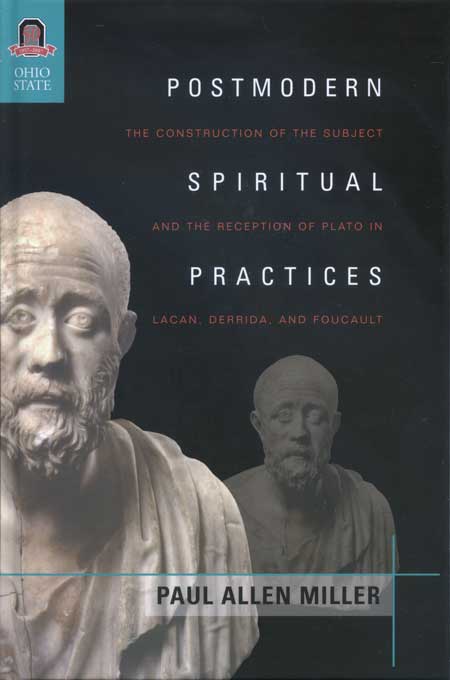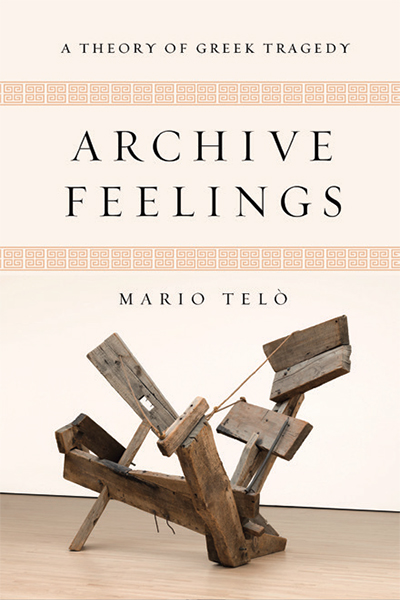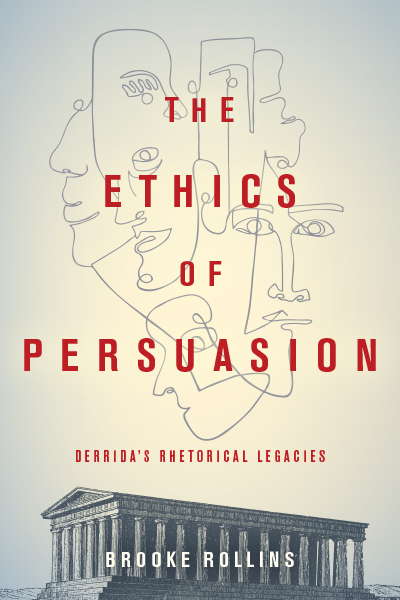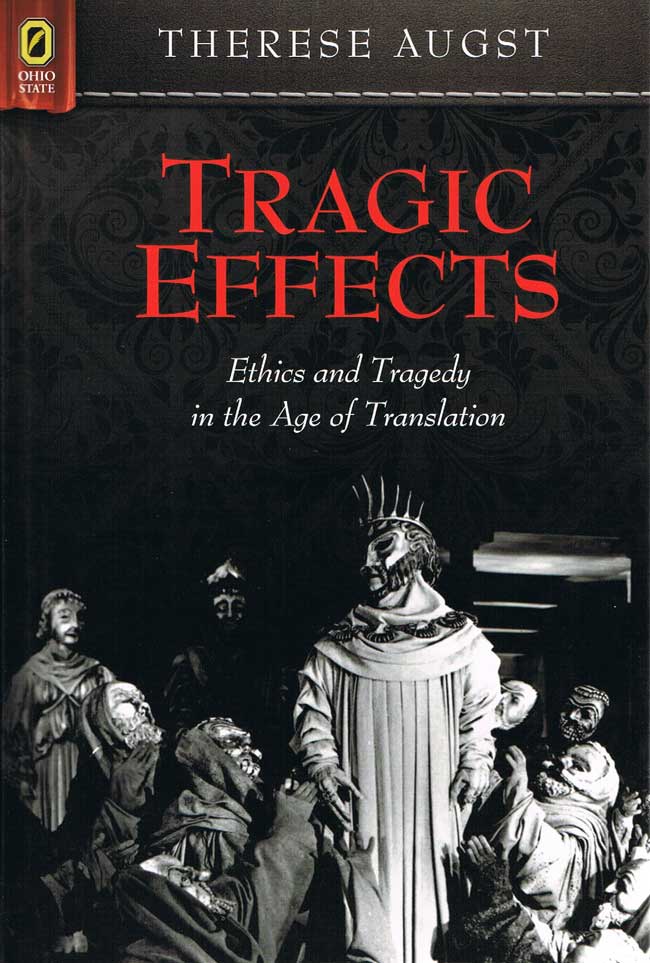“In this elegantly argued book, Mario Telò makes a convincing case for the death drive providing the anti-cathartic engine of Greek tragedy. … Archive Feelings stands already as valuable reading for scholars interested in tragedy, psychoanalysis, deconstruction, affect theory, aesthetics, queer theory, or critical race theory – and especially for those working at the nexus of multiple of these approaches.” —Sean Lambert, SubStance
“This ambitious and challenging book … makes a number of exciting contributions to tragic scholarship: Telò’s close readings are often innovative, offering compelling observations about the language of the plays which open up new paths for interpretation. … Archive Feelings is important and useful reading.” —Paul Eberwine, The Journal of Hellenic Studies
“Archive Feelings poses a novel and bold way of understanding the extreme feelings that tragedy evokes through its language, form, and rhetoric. Its disruption of prevailing orthodoxies will allow scholars to approach these ancient, much-discussed texts as if they were new.” —Erika L. Weiberg, Classical Philology
“Archive Feelings: A Theory of Greek Tragedy may be the most sophisticated application of postmodern paradigms to Greek tragedy to date. This original and truly bold study will appeal to the cross-set of readers who are familiar with both Greek tragedy and postmodern theory.” —Mark Padilla
“Mario Telò’s book is one of the most astonishingly original, learned, and engaging pieces of Classical scholarship. It is truly a vanguard work on several different fronts. It is the kind of work that not only the field of Classics, but contemporary literary criticism in general, has long been waiting for.” —Damian Stocking
Do we take pleasure in reading ancient Greek tragedy despite the unsettling content or because of it? Does a safe aesthetic distance protect us from tragic suffering, or does the proximity to death tap into something more primal? Aristotle proposed catharsis, an emotional cleansing—or, in later interpretations, a sense of equilibrium—as tragedy’s outcome, and Sigmund Freud and Jacques Lacan, grand theorists of the forces of anti-mastery in human and nonhuman existence, surprisingly agreed. Notwithstanding this deferral to Aristotle, their theorizations of the death drive—together with Jacques Derrida’s notion of the archive as a place of conservation that inevitably fails—provide the groundwork for a radically new way of understanding tragic aesthetics.
With bold readings of thirteen plays by Aeschylus, Sophocles, and Euripides, including the Oedipus cycle, the Oresteia, Medea, and Bacchae; an eclectic synthesis of Freud, Lacan, Derrida, Žižek, Deleuze, and other critical theorists; and an engagement with art, architecture, and film, Mario Telò’s Archive Feelings: A Theory of Greek Tragedy locates the genre's aesthetic allure beyond catharsis in a vertiginous sense of giddy suspension, in a spiral of life and death that resists equilibrium, stabilization, and all forms of normativity. In so doing, Telò forges a new model of tragic aesthetics.
Mario Telò is Professor of Classics at the University of California, Berkeley. He is the author of Aristophanes and the Cloak of Comedy: Affect, Aesthetics, and the Canon
Contents
Acknowledgments
Introduction Re-impressions of Greek Tragedy: Toward Anti-cathartic Aesthetics
Archival Time
1 Archiving Oedipus
2 The Archive and the Loop
Archival Space
3 Anorganic Archives
4 Archival Crypts
Archival Endings
5 Tragic Jolts, Jouissance, Impossibility
Epilogue Reading Greek Tragedy, Reading Archivally
Bibliography
Index
Related Titles:

Postmodern Spiritual Practices
The Construction of the Subject and the Reception of Plato in Lacan, Derrida, and Foucault
Paul Allen Miller




